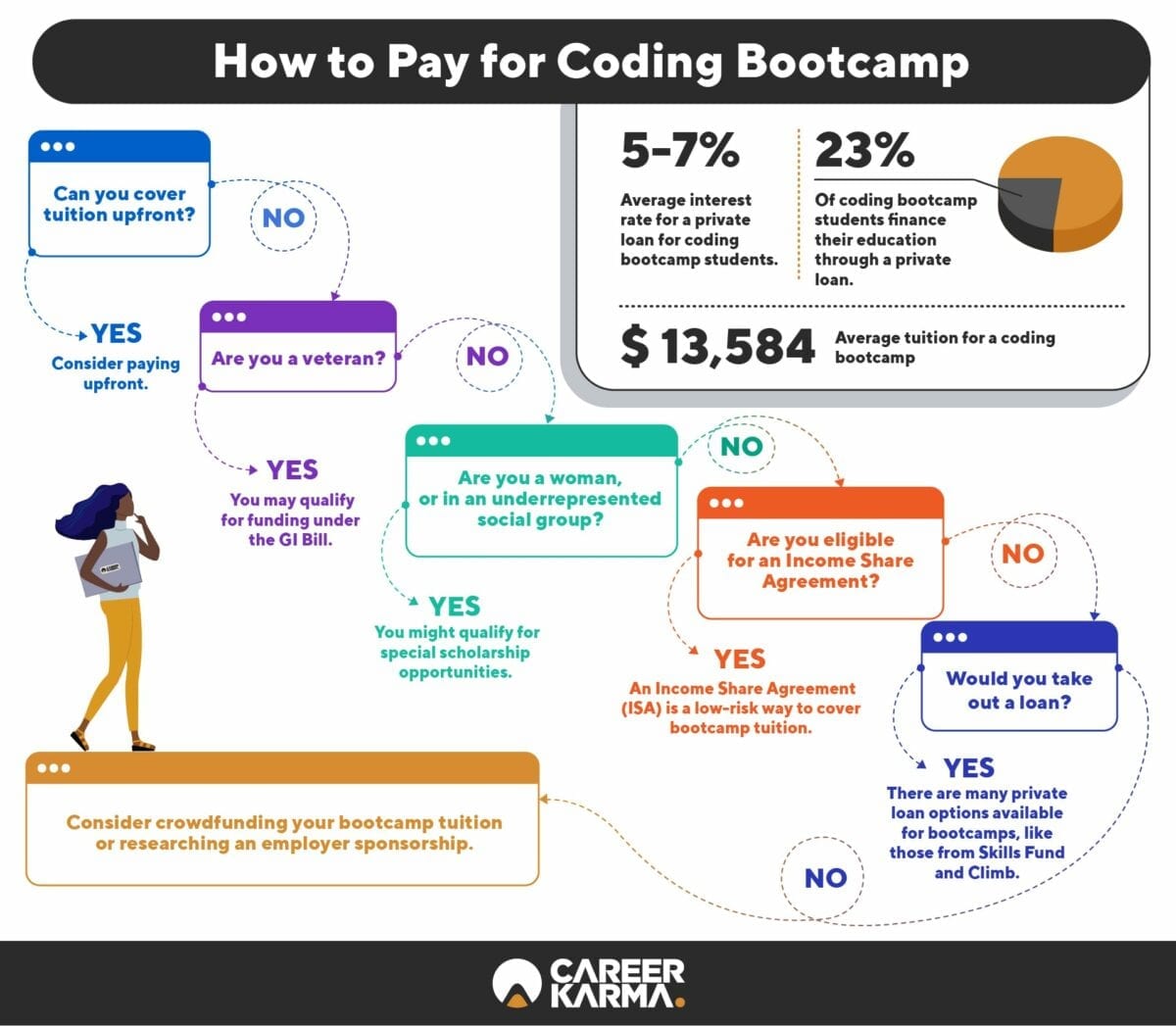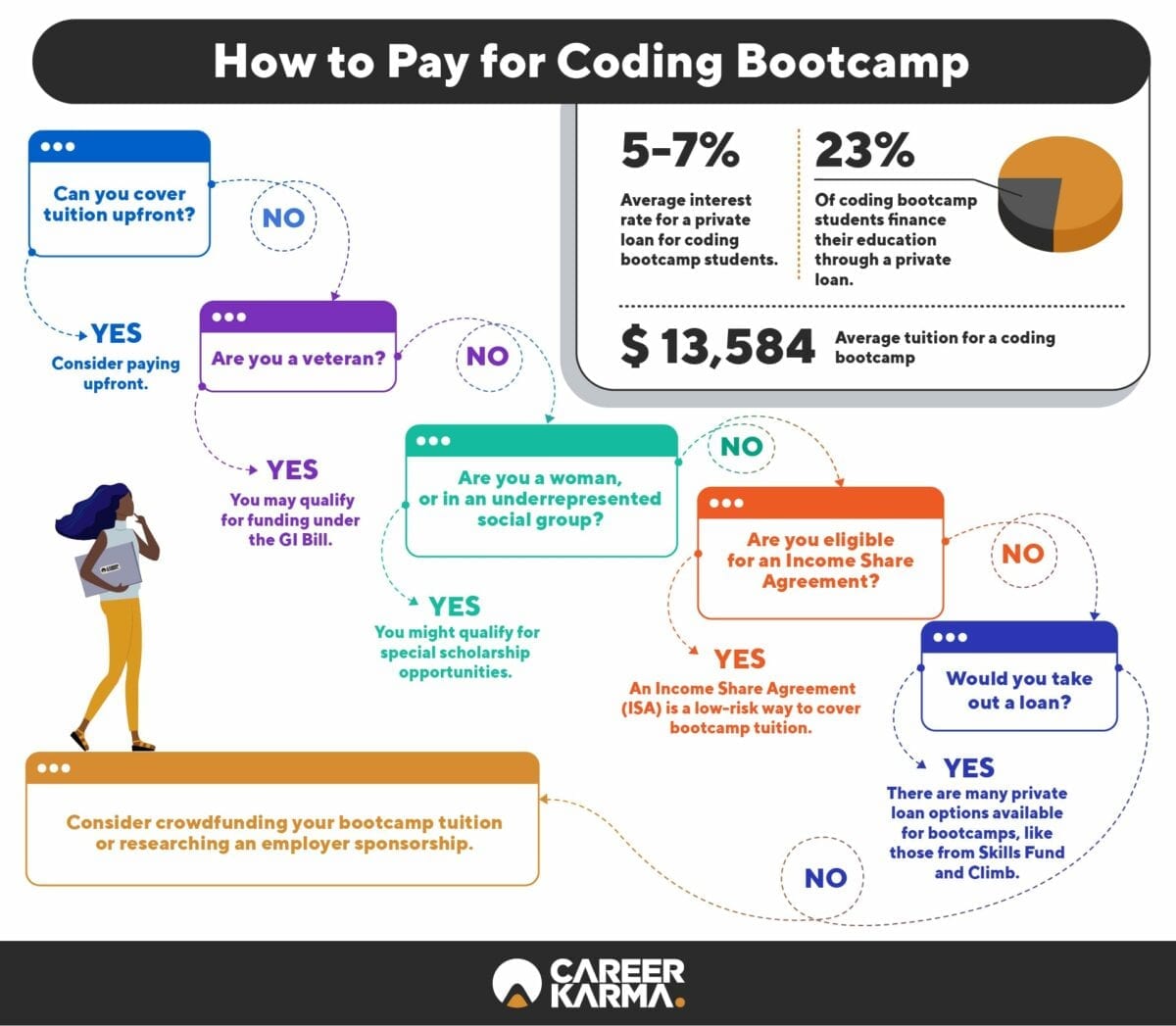IRS Tax Implications

The Internal Revenue Service (IRS) offers limited opportunities to deduct coding bootcamp expenses, unlike traditional higher education. The deductibility hinges on whether the course qualifies as education that maintains or improves job skills, rather than education leading to a new career. Understanding these nuances is crucial for accurate tax filing.
The IRS generally allows deductions for educational expenses only if they meet specific criteria. These expenses must be incurred to maintain or improve skills required in your current job. This contrasts with expenses for education leading to a new job or a new field, which are generally not deductible. The key difference lies in the intent and outcome of the education.
Deductible Coding Bootcamp Expenses
Coding bootcamps can be deductible if they directly relate to your existing occupation. For example, a software engineer enrolled in a bootcamp focusing on advanced programming languages directly applicable to their current role could potentially deduct the expenses. Similarly, a web developer taking a course on improving their front-end skills would likely find their expenses deductible. Crucially, the student must be able to demonstrate a clear link between the bootcamp and their current job responsibilities. The documentation needs to explicitly show this connection.
Non-Deductible Coding Bootcamp Expenses
Conversely, expenses for coding bootcamps leading to a career change are usually not deductible. If a marketing professional enrolls in a full-stack web development bootcamp to transition careers, these expenses would generally not be considered deductible. The IRS would view this as education for a new profession, not the maintenance or improvement of existing skills. Similarly, if someone attends a bootcamp to gain skills for a completely unrelated field, such as data science after a background in the arts, the expenses are unlikely to be deductible.
Required Documentation for Deduction
To claim a deduction, taxpayers must maintain meticulous records. This includes receipts, invoices, and any other documentation that verifies the bootcamp’s cost. Additionally, taxpayers should keep records outlining their current job responsibilities and how the bootcamp’s curriculum directly improved or maintained these skills. A detailed course syllabus demonstrating the relevance of the coursework to the taxpayer’s existing job is also highly recommended. Strong documentation significantly increases the likelihood of a successful deduction.
Comparison with Other Educational Expenses
The tax treatment of coding bootcamp expenses differs from that of college tuition. While certain college tuition expenses might be deductible through tax credits or deductions (such as the American Opportunity Tax Credit or Lifetime Learning Credit), these credits and deductions often have income limitations and other eligibility requirements. Coding bootcamp expenses, even if deductible, generally fall under the miscellaneous itemized deductions, which are subject to a 2% AGI (Adjusted Gross Income) limitation. This means that only the expenses exceeding 2% of your AGI are deductible. Therefore, the deductibility of coding bootcamp expenses is significantly more limited and complex than many traditional educational expense deductions.
Accreditation and Recognition: Are Coding Bootcamps Considered Higher Education Expenses

The accreditation and recognition of coding bootcamps significantly impact their perceived value, influencing both student financial aid eligibility and employer hiring decisions. Understanding the accreditation landscape and how different organizations evaluate these programs is crucial for prospective students and employers alike. The lack of standardized accreditation across the board means careful research is essential.
The role of accreditation in determining the eligibility of coding bootcamp expenses for financial aid or tax deductions is complex and varies depending on the specific program and funding source. While some government programs may consider accreditation when evaluating eligibility for grants or loans, others may focus more on the program’s curriculum and job placement outcomes. Similarly, tax deductions related to educational expenses may depend on factors beyond accreditation, such as the program’s purpose and the student’s pursuit of a credential.
Accrediting Organizations and Their Standards, Are coding bootcamps considered higher education expenses
Several organizations accredit coding bootcamps, each with its own set of standards. These standards often focus on aspects like curriculum quality, instructor qualifications, student support services, and job placement rates. However, it’s important to note that not all bootcamps are accredited, and accreditation from one organization doesn’t necessarily equate to accreditation from another. A lack of universal standards contributes to the complexity of comparing programs. For example, the Council on Occupational Education (COE) accredits vocational schools, often including bootcamps that focus on career-oriented training. Other organizations may focus on specific aspects of the program, such as the quality of their online learning environment or their commitment to diversity and inclusion. The specific standards applied will vary greatly depending on the organization.
Governmental and Institutional Recognition
Governmental agencies and educational institutions recognize coding bootcamps to varying degrees. Some government agencies may recognize bootcamp certificates for specific licensing or certification purposes, while others may not. Similarly, traditional universities may or may not grant credit for bootcamp coursework. This disparity reflects the ongoing evolution of the bootcamp industry and the challenges in integrating non-traditional educational models into established systems. For instance, some state licensing boards might accept a coding bootcamp certificate as fulfilling educational requirements for a specific profession, while others might require a degree from an accredited university. Likewise, the acceptance of bootcamp credits for transfer to a four-year university varies greatly.
Employer Considerations
Employers evaluate the legitimacy and value of a coding bootcamp certificate based on several factors. These factors often extend beyond mere accreditation and include the bootcamp’s reputation, curriculum relevance, job placement rates, and the overall skills demonstrated by graduates. A strong alumni network and positive employer reviews can significantly influence an employer’s perception. Specific factors include the bootcamp’s curriculum alignment with industry demands, the quality of instructors and their industry experience, the availability of career services and mentorship, and demonstrable evidence of successful job placement outcomes for previous graduates. A high percentage of graduates securing employment in their field within a reasonable timeframe after graduation is a key indicator of a bootcamp’s value to employers.


Tim Redaksi